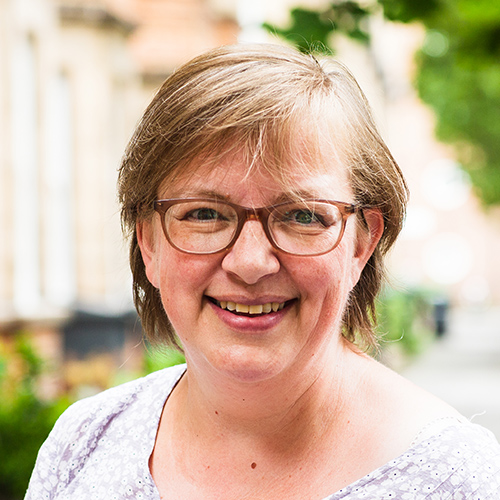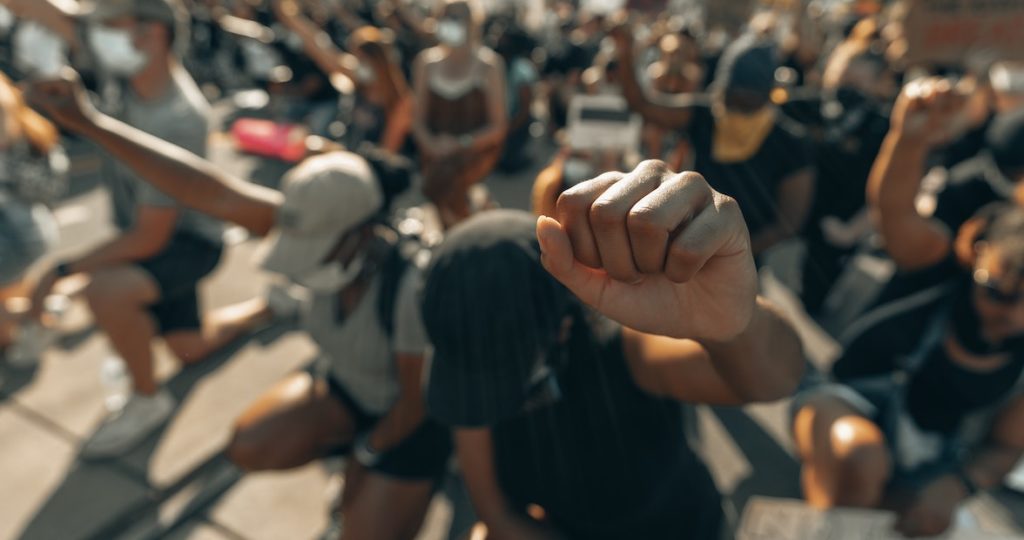The world is on fire. For several years now our political landscape seems to have been a lurch from one disaster to another. For a couple of months there, at the beginning of 2020, it seemed as though things were about to settle down. Then the worldwide pandemic hit. And as America stumbled hazily out of it, the racist killings of Ahmaud Arbery, Breonna Taylor and George Floyd shook us to the core. The health, wealth and privilege many of us have been building our lives on are no longer the firm foundations we once thought they were.
Such an all-embracing inferno, however, gives us an opportunity to take stock and to consider what kind of world we want to construct from the rubble. A survey back in April found that just 9% of Brits wanted everything to go back to how it was before the lockdown. 78% wanted to see changes in the country as a result of what we have learned from the coronavirus crisis, and 60% wanted to make changes in their own lives.
We have a once-in-a-lifetime opportunity to identify what we value, to rescue from the flames that which is important to us, and to build on what has endured.
Unfortunately, history tells us it’s not quite as easy as that:
In 1666 a small fire started in a baker’s shop near London Bridge. A combination of circumstances – a long, dry summer, the building designs and materials at the time, the lack of coordinated response, the hesitation of leaders to do something drastic – led to the destruction of a vast swathe of London. In order to stop the fire, buildings in its path had to be pulled down or blown up, to prevent the sparks leaping from one thatched roof to the next and the next, and the next. In all, around 13,200 houses were destroyed as a result of the fire, as were many public buildings, including the medieval St Paul’s Cathedral.
Once the fire was out, the city had the opportunity to reassess itself, to make some changes in the ways it did things, and even to consider designing a new layout for the streets. Sir Christopher Wren submitted perhaps the boldest design for the city’s layout, suggesting a grid-like system of boulevards and piazzas in place of the higgledy-piggledy lanes and by-ways that had been growing up almost organically for centuries.
Inertia, self-interest and lack of money, however, won the day. Landowners didn’t want to surrender their property in favour of a newer, safer, more beautiful city. They wanted to hold on to what they had (and if possible use the crisis to gain more), and the government had neither the money nor the strength to do anything about it.
And so, the city grew up once more, the warren of streets falling, for the most part, back into their previous, comfortable, chaotic pattern.
The trouble is, we all, if we are honest, recognise this tendency towards self-interest running through our lives. That is why racism is so endemic. Most people agree that police brutality towards black people is wrong, and many thousands of us will go on marches to protest against it, but when it becomes personally costly to step in, to swim against the tide, to disadvantage ourselves for the sake of strangers, that is much harder to do. We might call on the authorities to come and douse the flames engulfing our neighbours’ homes, but when they say that our own houses must be pulled down in order to stop their spread, it is a different matter. (One reason the Great Fire of London spread so far was because people were so resistant to having their homes pulled down to create the fire break. The result: they lost their homes anyway, and more people’s homes and livelihoods were destroyed because of their selfishness.) We might demand pay rises for nurses, or for the government to continue the food voucher scheme – for children eligible for free school meals – right through the summer, but when other services have to be cut, or our taxes raised, to pay for it, we’re not quite so enthusiastic. (And as with the fire, the cost will come eventually, but only after greater damage has been done to more people.)
Similarly, with setting out new roadways, new processes and procedures, new paths for life to run along, many of us shy away from that. Yes, we want there to be fewer fires, but not at the cost of our way of life, not if it means we have to give up the things we like, the things that are convenient for us, the things that make our lives comfortable.
We have an opportunity at this time to take a good, hard look at ourselves, as well as our culture. Change needs to happen, at a global level, but we can’t expect it to happen out there unless it happens first in our lives, and in our hearts. It is hypocrisy to expect others to change when we are not willing to turn our backs on the anger, pride, selfishness and more in our own lives.





